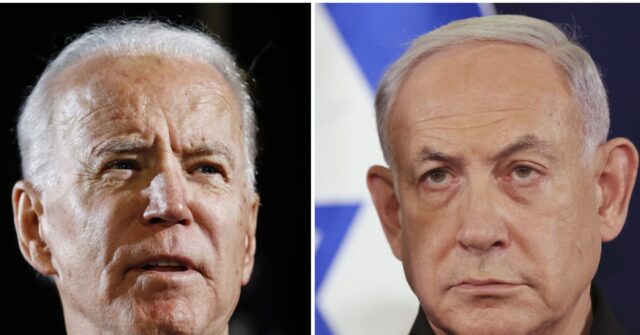On a significant diplomatic occasion, President Joe Biden spoke with Israeli Prime Minister Benjamin Netanyahu for the first time since August. This communication followed a period of escalating tensions, particularly due to the war in Lebanon and a recent Iranian missile attack on Israel. Historically, Biden and Netanyahu have had a strained relationship, highlighted by previous instances of disagreement. The tension peaked when Netanyahu ordered an airstrike that killed Hezbollah leader Hassan Nasrallah despite Biden advocating for a ceasefire. This exacerbated existing frustrations within the White House, straining U.S.-Israel relations further. Additionally, Israeli officials expressed displeasure over what they perceived as U.S. disloyalty regarding leaked details about Israel’s military plans, prompting Netanyahu to be cautious in sharing sensitive information with Biden’s administration.
Amidst these mounting pressures, it was reported that the Israeli security cabinet opted to coordinate its response to the Iranian missile attack with the United States. However, direct communication with the Biden administration was notably limited, occurring only through military channels rather than official diplomatic discussions. Frustrations on both sides became evident when Israeli Defense Minister Yoav Gallant was set to travel to Washington, a plan abruptly canceled by Netanyahu. Netanyahu insisted that Gallant’s trip would only proceed after Biden had agreed to engage directly with him, showcasing the deteriorating nature of their diplomatic interactions.
Eventually, Biden relented and engaged in a 50-minute conversation with Netanyahu, which also included Vice President Kamala Harris. The dialogue took place in an atmosphere charged with urgency, given the ongoing conflicts affecting both nations. State Department representatives, including Secretary of State Antony Blinken, participated in the call as well, underlining the importance of high-level U.S. involvement. Although the details of their conversation were not immediately disclosed by either side, the mere act of dialogue represented a significant step in addressing the strains in U.S.-Israeli relations.
The White House characterized the call as “direct” and “productive,” with Press Secretary Karine Jean-Pierre noting that it lasted around 30 minutes. This brief yet significant encounter was anticipated to cultivate a more collaborative approach towards the growing regional crises, despite the backdrop of previous disagreements. While no concrete outcomes were announced immediately following the call, the discussions implied a possible realignment of strategies moving forward as both nations navigate the complexities of ongoing conflicts in the region.
Despite the overarching tension, the conversation marked an essential attempt to establish a functioning dialogue between Biden and Netanyahu. It underscored the reality that, despite their differences and criticisms, communication lines remained open—a crucial aspect of international relations. The diplomatic exchange is indicative of the necessity for cooperation in addressing mutual challenges, especially with threats emerging from destabilizing forces like Iran and groups like Hezbollah.
As Israel and the United States continue to grapple with these multifaceted conflicts, the outcomes of the Biden-Netanyahu discussions could have sweeping implications for future diplomatic engagements. The political landscape remains fluid, with anticipated shifts influenced both by external pressures and internal domestic considerations in both countries. Given that Netanyahu’s government faces its own set of challenges, including public pressure and security dilemmas, the continued dialogue with the U.S. may serve as a vital lifeline, reinforcing alliances that are crucial for regional stability amid escalating violence.

